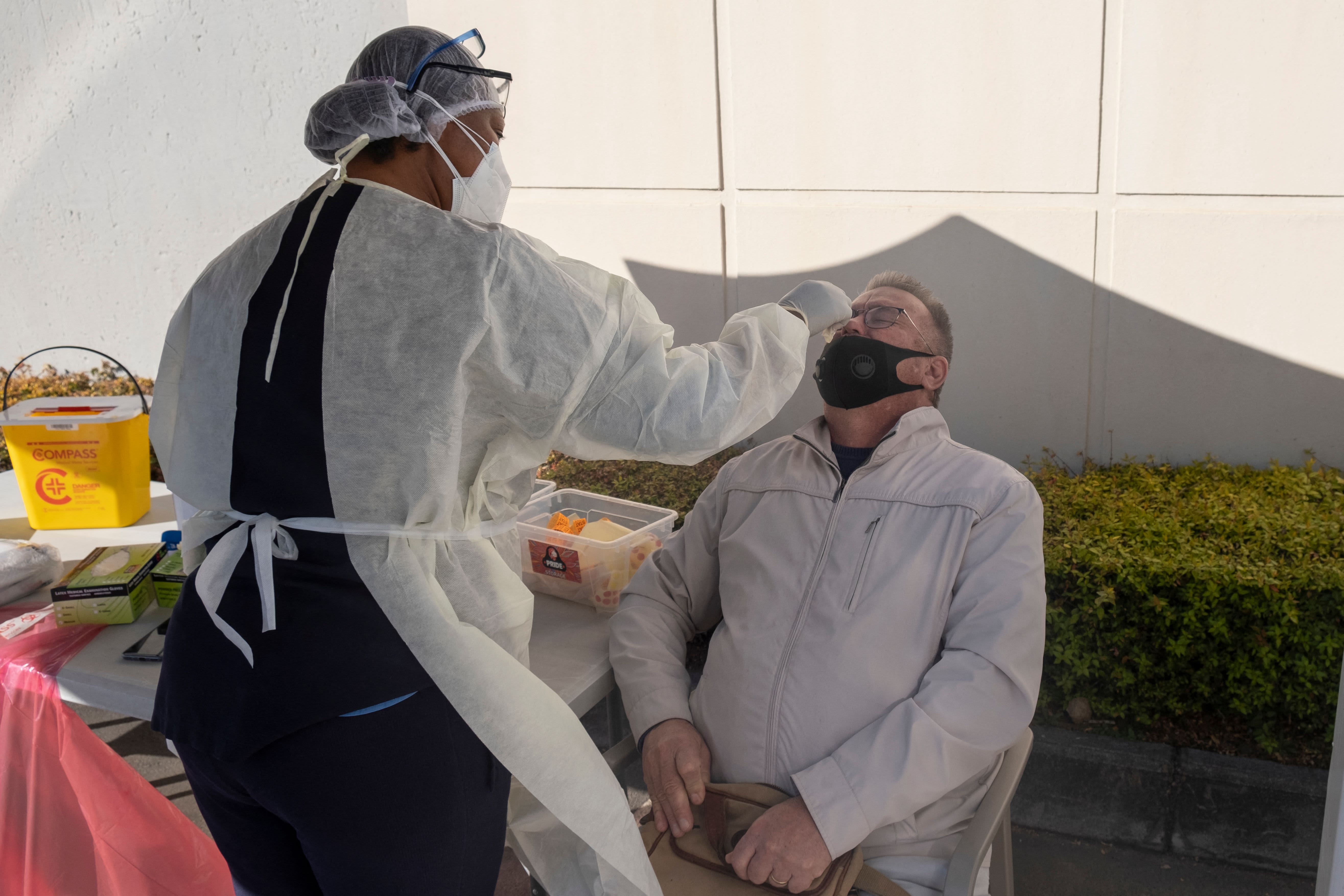SINGAPORE — The new Covid variant omicron will likely “overwhelm the whole world” in the coming months, according to a Singapore-based infectious disease doctor.
While vaccines against the strain can be developed quickly, they need to be tested over three to six months to prove that they can provide immunity against the variant, Dr. Leong Hoe Nam of Mount Elizabeth Novena Hospital said Wednesday.
“But frankly, omicron will dominate and overwhelm the whole world in three to six months,” he told CNBC’s “Street Signs Asia.”
Delta, the strain that is currently accounts for 99% of Covid infections, started becoming more common in the Indian state of Maharashtra in March 2021, and was dominant globally by July, according to Reuters.
Moderna CEO Stephane Bancel on Monday said it will take months to develop and ship a vaccine that specifically targets the omicron variant.
Pfizer CEO Albert Bourla also said shots could be ready in less than 100 days, or slightly over three months.
“Nice idea, but honestly, it is not practical,” Leong said of a vaccine that specifically targets omicron. “We won’t be able to rush out the vaccines in time and by the time the vaccines come, practically everyone will be infected omicron given this high infectious and transmissibility.”
Experts don’t know exactly how contagious the highly mutated omicron variant is, but the virus’ spike protein — which binds to human cells — has mutations associated with higher transmission and a decrease in antibody protection.
“The profile of the mutations strongly suggest that it’s going to have an advantage in transmissibility and that it might evade immune protection that you would get,” U.S. infectious disease expert Dr. Anthony Fauci told NBC’s “Meet the Press” on Sunday.
Protection from current vaccines
That said, some doctors believe that the existing vaccines will be able to provide some protection against the new variant.
Our bodies generate a “whole host of different antibodies” in response to vaccines, said Dr. Syra Madad, a fellow at the Belfer Center for Science and International Affairs.
“I do think that our current vaccines will hold up to a certain extent, with this new variant,” she told CNBC’s “Capital Connection” on Wednesday, noting that the vaccines were able to provide protection against delta.
“It may reduce vaccine effectiveness by a couple of notches, but that is yet to be seen,” she said. Current vaccines, along with boosters should still provide a “good level of protection,” she added.
Leong agreed that a three-dose vaccine regimen would likely protect against severe disease, but pointed out that many countries still have low vaccination rates.
He said omicron is “threatening the whole world” with a sudden surge in cases, and health-care systems could be overwhelmed, even if only 1% or 2% of the cases end up in hospital.
Omicron was first detected in South Africa and was designated a variant of concern by the WHO last week. It has since been reported in several other places, including Hong Kong, the Netherlands and Portugal.
For now, however, Leong said we should continue to roll out vaccinations, keep our distance, wear masks, and not be overly concerned.
Madad echoed the same sentiment. “We continue to do the Covid-19 prevention measures on an ongoing basis,” she said. “Layering it up is really the best approach here.”
— CNBC’s Saheli Roy Choudhury, Spencer Kimball and Yen Nee Lee contributed to this report.
